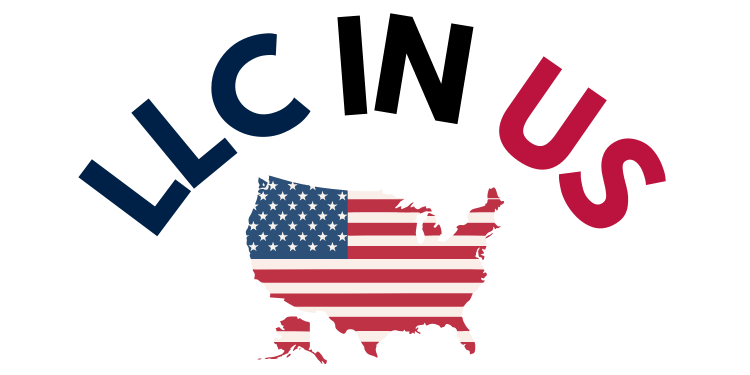
Definition and Overview of Limited Liability Protection
Limited liability protection is a legal framework that ensures the personal assets of business owners or shareholders are safeguarded from the financial obligations and liabilities of the business. This protection creates a clear separation between the entity and its owners, limiting their risk to the extent of their investment in the company.
Entities like Limited Liability Companies (LLCs) and corporations are designed to offer this protection, making them attractive options for entrepreneurs and businesses seeking to manage risk effectively.
Key highlights of limited liability protection include:
- Shielding personal assets such as homes, cars, and savings from business debts or lawsuits.
- Providing a legal structure that promotes investment and growth by reducing personal financial risk.
How Limited Liability Protection Works
Limited liability protection functions by legally distinguishing the business entity from its owners. Here’s how it operates:
- Entity Formation
- The business must be registered as an LLC, corporation, or other entity that offers limited liability.
- Compliance with state and federal regulations is required to maintain this status.
- Financial Separation
- The company must maintain separate financial records and bank accounts.
- Owners should avoid commingling personal and business funds to ensure legal protection.
- Risk Management
- In case of lawsuits or debts, creditors can only target the company’s assets, not the personal assets of its owners.
| Factor | Limited Liability Entities | Unlimited Liability Entities |
|---|---|---|
| Personal Asset Protection | Yes | No |
| Risk to Owners | Limited to investment | Extends to personal assets |
| Legal Structure Complexity | Moderate | Low |
Entities Offering Limited Liability Protection
Several business structures provide limited liability protection, including:
- Limited Liability Companies (LLCs)
- Combines flexibility of partnerships with the liability protection of corporations.
- Corporations
- Includes S-corporations and C-corporations, offering robust liability protection but with stricter regulatory requirements.
- Limited Partnerships (LPs)
- Provides liability protection to limited partners, while general partners may retain unlimited liability.
- Nonprofit Organizations
- Protects directors and officers from personal liability in most cases.
Key Benefits of Limited Liability Protection
- Personal Asset Security: Safeguards personal wealth against business-related risks.
- Encourages Entrepreneurship: Reduces fear of financial loss, encouraging individuals to start businesses.
- Attracts Investors: Offers assurance to investors who may otherwise hesitate to invest in risky ventures.
- Improves Credibility: Gives businesses a professional image and credibility with clients and stakeholders.
Common Misconceptions About Limited Liability Protection
- “It’s Absolute Protection”
- Limited liability does not shield owners from liability arising due to fraud, negligence, or personal guarantees.
- “All Business Structures Offer This”
- Only certain entities like LLCs and corporations provide limited liability. Sole proprietorships and general partnerships do not.
- “No Need for Business Insurance”
- Liability protection is complemented, not replaced, by insurance coverage to address other risks.
Limited Liability vs Unlimited Liability
| Aspect | Limited Liability | Unlimited Liability |
|---|---|---|
| Personal Asset Protection | Yes | No |
| Legal Entity Requirement | Required (e.g., LLC, Corp) | Not required (e.g., sole proprietorship) |
| Risk to Owners | Limited to business assets | Extends to personal assets |
| Administrative Complexity | Higher | Lower |
FAQs
What Does LLC Not Protect Against?
An LLC provides robust protection, but there are limits to what it can shield owners from:
- Personal Guarantees
If an owner personally guarantees a loan or other obligation, they are personally liable for repayment. - Fraudulent or Illegal Activities
Engaging in fraud or illegal actions voids the limited liability protection, exposing personal assets to risk. - Negligence or Wrongful Acts
Owners or managers can be held personally liable for negligence or wrongful acts they commit. - Failure to Maintain Corporate Formalities
Commingling business and personal finances, or not adhering to state requirements, can lead to a “piercing of the corporate veil.”
What Is the Meaning of Limited Liabilities?
Limited liabilities refer to the legal principle where the financial risk of an owner or investor in a business is restricted to the amount they have invested in the entity. Their personal assets are generally protected from business debts and legal claims.
For example:
- If an LLC incurs debts it cannot repay, creditors can pursue the business’s assets but cannot seize the personal assets of the owners.
- This principle underpins structures like LLCs and corporations, differentiating them from sole proprietorships or partnerships with unlimited liability.
What Is the Main Advantage of Limited Liability?
The primary advantage of limited liability is personal asset protection.
Key benefits include:
- Reduced Risk: Business owners’ liability is limited to their investment, ensuring personal assets like homes or savings remain safe.
- Encouragement for Innovation: Entrepreneurs can take calculated risks without fear of losing personal wealth.
- Ease of Investment: Attracts investors by limiting their financial exposure.
Does an LLC Protect Your Personal Credit?
An LLC provides limited protection for personal credit under normal circumstances:
- Separation of Business and Personal Credit
Debts incurred by the LLC do not directly affect the owner’s personal credit unless they personally guarantee the debt. - Personal Guarantees
If an owner signs a personal guarantee for a loan or lease, failure to meet obligations can impact their personal credit score. - Proper Financial Practices
To protect personal credit, owners must keep business and personal finances separate and ensure the LLC adheres to legal and financial obligations.


One Response